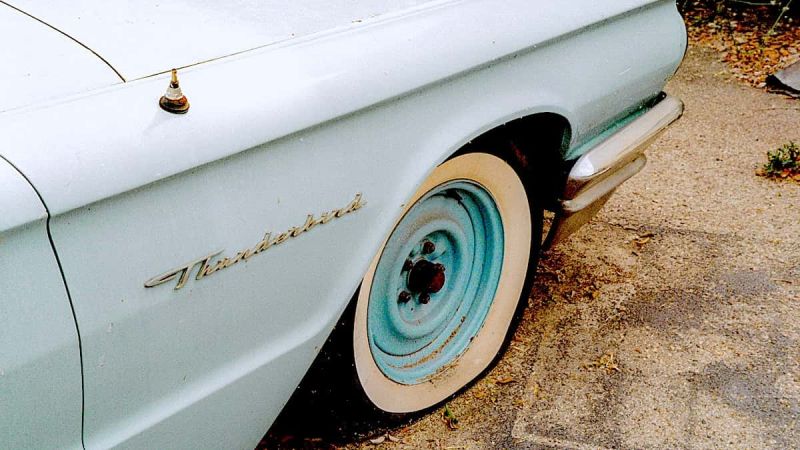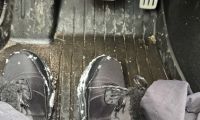Statistics show that on average every driver will experience up to 5 flat tires in their lifetime. To make matters worse for when you do have a flat tire, you just might discover that that new car you bought recently does not come with a spare tire. In fact, Torque News writer John Goreham recently posted how that vehicle makers are stealing the spares from EV owners.
The reasons for lack of a spare tire range from they weigh too much for the newer EV vehicles where range anxiety is a concern of green car enthusiasts, to unsubstantiated claims that today the chances of ever having a flat are too remote to justify the continued practice of providing all vehicles with even a smaller temp spare for emergencies. Codswallop!
According to multiple sources listed about flat tires, in the United States alone, approximately 7 tire punctures occur every second, resulting in 220 million flat tires per year.
Your Options For a Flat Tire Problem
So how can you prepare yourself for those times you will have a flat, but your car did not come with a spare tire? You basically have 4 options:
1. Buy your own spare from a company that deals in spares designed for your model of car.
2. Outfit your car with tires designed to run even when flat so that you can make it to a service station or tire center for repair or replacement.
3. Buy into a roadside assistance program that will send a service truck to your vehicle that will either repair the flat on the spot or provide a spare tire.
4. DIY with a flat tire sealant that will keep your tire adequately inflated until you can make it to a tire service center.
In this article we will look at option number four.
What Consumer Reports Has to Say About Flat Tire Sealants
Sealant Kits
Sealant kits are designed for flat tires that result from a puncture wound to the tire such as running over a nail or some other relatively small and narrow sharp object. If the damage is much bigger than that such as a crack or larger hole, sealant kits don’t work.
Typical sealant kits most motorists think of consist of just a pressurized can containing a gooey sealant that can temporarily seal a hole as the pressure within the can partially inflates the tire and forces the sealant into the puncture. However, other kits are more involved and include a small compressor for inflating the tire fully. As such, compressor kits are the more expensive option running anywhere between $24 to $80, whereas a pressurized can of sealant usually runs between $7 and $20.
There is also a third type of sealant system that consists of a liquid sealant squirted by hand through the valve stem of a flat tire and then inflated with a compressor; however the compressor is not included. The price range of a bottle of this type of sealant runs between $9 to $14.
Cons of Sealants Regardless of Repair Kit Type
• They are messy and can add to the cost when the tire is eventually repaired.
• Sealants can gum-up your tire pressure monitoring system.
• Limited to puncture holes 6mm or less is diameter.
• Might not work if multiple holes are involved.
• Limited distance of travel after sealing.
• Have to drive relatively slowly after sealing.
• May have a limited shelf life.
• Pressurized cans of sealant are at risk of exploding in a hot car.
Despite the cons of sealants, Consumer Reports recommends that choices that include a compressor are the ones more likely to result in success. Depending on how bad the leak is and how well (or not) it seals the hole, repeated use of a compressor can help you limp your way back home or to help.
Flat Tire Repair Testing Procedures
Tests were done using brand new tires with both 2.4 mm and 5.8 mm diameter nails welded to a flat metal plate with the car lowered by a lift so as to puncture all tires equally. After the punctured tires became flat, the sealant and sealant kits were used separately, with the tires inflated to 35 pounds of pressure and driven a short distance to ensure the insides of the tires were adequately coated with the sealant.
If there was no loss of air pressure, the tires were then put on the road for 50 miles, parked overnight, and the tire pressure rechecked the next day.
Tire Sealant Product and Kit Reviews
Pressurized Can Sealants
Super Tech Tire Sealant & Inflator ($7 at Walmart) ---available from Walmart and the least expensive product tested, the analysts from CR found that this one did not work---even with the smallest puncture of 2.4 mm. Similar to the Fix-a-Flat product, a compressor was needed to top off the tire pressure to the car’s recommended pressure. But, because of its poor test performance, the analysts recommend considering any of the other products evaluated over this bargain-priced sealant.
Fix-a-Flat ($8 to $20 at Walmart, AutoZone, Amazon, Home Depot, Target and Fix-a-Flat)---in spite of being a common name in pressurized-can sealants, it’s tested performance is quite poor, which greatly offsets the convenience of being the among the easiest to use. According to CR, “Fix-a-Flat was able to seal the smaller 2.4-mm puncture with a minor loss of pressure in a 24-hour period. However, it could not seal the 5.8-mm puncture, and it could not inflate the tire without topping off with a compressor.” Another mark against it is that if you drive a truck or SUV you will have to buy the more expensive larger can size.
Liquid Tire Sealants
Slime Tire Sealant Thru-Core Technology ($9 to $14 found at Ace Hardware, AutoZone and Walmart) --- Like the Fix-a-Flat pressurized can, this non-pressurized sealant was able to seal a 2.4 mm hole, but it failed on the 5.8 mm puncture. Plus, it requires a portable tire inflator, making the Fix-a-Flat pressurized can a better (but tire pressure limiting) inexpensive solution.
Tire Sealant Kits (Compressor Containing)
airMan ResQ Pro + ($80 found at Grainger)---a kit that has the compressor doing the hard part for you by feeding the sealant directly into the tire, this kit was found to easily seal the large 5.8-mm puncture with the added plus that it inflated flat tires quicker than the other products tested. A no-assembly, easy-to-use, self-contained and complete kit, this was the favorite among the analysts.
airMan ResQ Tire Repair Kit ($55 at Amazon)---this little brother to the airMan ResQ Pro + has similar performance to its bigger brother, but it requires assembly of the sealant container to the compressor as well as disassembly afterward. The opinion of the analysts is that spending the extra $25 makes the Pro+ a better choice of the two.
Slime Smart Spair Emergency Flat Tire Repair Kit ($24 to $40 found at Walmart, Amazon, Ace Hardware, Advance Auto Parts, Sportsman’s Warehouse and Slime)---this is a less-expensive compressor kit that was successful in sealing a large 5.8-mm puncture with ease. However, the sealant is not self-feeding via the compressor and thereby requires removing the valve stem and then squirting the sealant into the flat tire by hand. Being more cumbersome to use than the two aforementioned airMan products, the analysts did not view the cost savings worth the added bother.
Slime Flat Tire Repair Kit Digital Series ($35 to $55 found at Walmart, AutoZone and Amazon)---although containing a built-in pressure gauge and feeding the sealant into the tire via the compressor like the airMan kits, the analysts reported mixed reviews of its performance: it would seal both 2.4 mm and 5.8 mm punctures---but not always, and air loss after sealing was not the best. They determined that either of the two previously listed airMan products would be their preferred choice over this tire repair kit product .
Final Determination
The analysts recommend kits containing a compressor over just sealants in either bottle form or pressurized cans. They observed that:
• Tire sealant kits were far superior to pressurized-can sealants.
• The kits were able to seal a larger puncture and included a compressor to inflate the flat tire to the recommended tire pressure.
• Pressured cans of sealant will not inflate tires adequately enough for safe road travel.
• With the exception of the Super Tech Tire Sealant, both the Fix-a-Flat and the Slime Tire Sealant do seal at least the smaller of the puncture holes, but without a compressor handy (and because of the cons listed with pressurized can products) they are not recommended by the analysts of Consumer Reports.
Be sure to watch for additional future articles about saving on car repairs and tire repair and used car savings recommended from consumer testing services, as well as some DIY tips on fixing your car.
Coming Up Next: Consumer Reports Goes After Tesla and Beta 9 FSD.
Timothy Boyer is Torque News Tesla and EV reporter based in Cincinnati. Experienced with early car restorations, he regularly restores older vehicles with engine modifications for improved performance. Follow Tim on Twitter at @TimBoyerWrites for daily Tesla and electric vehicle news.
Photo by Kenan Reed on Unsplash
Set as google preferred source












Comments
Nice review. My previous
Permalink
Nice review. My previous Chevy Volts had a small air compressor and sealant cartridge, and after 2 failures, where newer, punctured tires were ruined by the goo, and still didn't fix the flat. I decided to never use tire sealant ever again. Bigger gashes and damage to the tire sidewall cannot be repaired anyway, and I have had much better luck plugging nail holes in the tread with tar/rope repair kits, or taking the tire to a nearby tire shop to have it properly patched. I have a roadside assistance program service for towing, and even though it is not as instant of a fix as spray sealant, it is a far better working solution in the long run.
Thanks. Yes, I believe you
Permalink
Thanks. Yes, I believe you are right about tar/rope repair kits being a better choice in practice; however, it does take some skill and is not for everyone. And yes, I've used those gooey sealants in the past too when I was a poor college student buying $15-20 USED tires---and I'm not talking retreads here. That goo can turn into a bigger problem than the original flat. In an emergency they can still come in handy, but with smart phones today we may be the last generation to ever use products like Fix-a-Flat.
Tim,
Permalink
Tim,
Can you recommend a good tire inflator or compressor that i can use at home to inflate or maintain adequate pressure in automobile tires? Thanks
443-293-6325
Hi, sorry did not get back to
Permalink
In reply to Tim, by Scott gordon (not verified)
Hi, sorry did not get back to you sooner---new computer switch over---here's a link to an article about Top Rated and Bargain Brand Cordless Portable Tire Pump Choices for Your Car (https://www.torquenews.com/14093/top-rated-and-bargain-brand-cordless-portable-tire-pump-choice-your-car) on our site that is a less expensive option if all you need it for is to keep your tires inflated. However, if you have other job needs with it like some sandblasting of parts, engine cleaning, etc you can't go wrong with one of those small portable (but powerful) air compressor models roofers use that you can find at Home Depot or Lowes. I keep one in my garage because if I ever need to get to someone with a flat, I can just fill the 2 small tanks and put it in the truck before driving to wherever they are broke down at. Hope this helps.